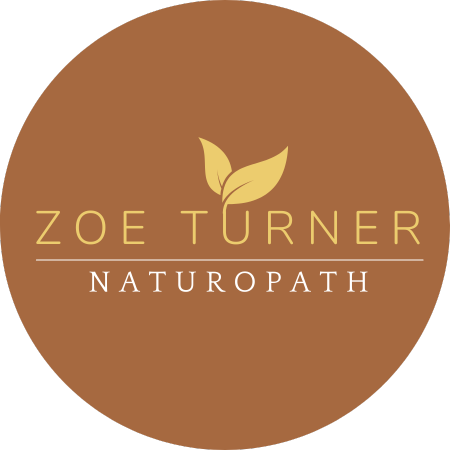The immune system fights germs and foreign substances on the skin, in the tissues of the body and in bodily fluids such as blood. A whopping 75% of our immune system is in our gut. So when our gut is in disarray (bloating, diarrhoea, parasites, constipation, microbiome imbalance & dysfunction) this can cause our immune system to not work effectively leaving us open to diseases and illnesses.
The immune system has two major branches: Innate and adaptive
Innate : non-specific immunity
1st line of defence from invading pathogens.
It acts very quickly with pattern recognition receptors that recognise the foreign body and produce special cells that capture, destroy & eat the foreigners (phagocytosis). This is the innate immune systems (1st) inflammatory response. A simplified example could be when you cut yourself a clear liquid will often weep out of the skin, these are your capture, destroy & eat cells that concentrate in numbers to the wound area and we then see these signs as weeping, inflammation, heat & swelling.
• Non-specific immunity includes physicals barriers to protect from foreign bodies, secretions to clean the site, phagocytes that eat up the foreign bodies.
• Dendritic cells are super important as they are responsible for initiating an adaptive immune response and function as the ‘sentinels’ of the immune system.
• Studies have shown that only one mature dendritic cell is required to stimulate between 100 to 3000 T cells.
Adaptive: Specific immunity
The 2nd line of defence that protects us from re-exposure to these foreign bodies & invading organisms, allergens and abnormal host cells is slower to respond but because it has memory of the foreign body it responds with accuracy. This means once we have had some illnesses often we won’t get the illness in our lifetime again.
Specific immunity comprise of two main types of lymphocyte cells: B cells and T cells.
The B cells produce antibodies that are used to attack invading bacteria, viruses, and toxins, they hold a memory pattern of the foreign body.
The T cells destroy the body’s own cells that have themselves been taken over by viruses or become cancerous.
Antibodies
Antibodies are compounds of protein and sugar that circulate in the bloodstream. They are created by the immune system to fight germs and foreign substances. Antibodies can quickly detect germs and other potentially harmful substances, and then attach to them. This neutralizes the “intruders” and this attracts other immune system cells to help.
The antibodies of the adaptive immune system also support the innate immune system.
Immune support nutrients
Vitamin D stimulate the innate immune response by increasing the activity of the cells thats purpose is to eat the foreign bodies. It regulates T cells adaptive immune response and is an anti-proliferative and an anti-inflammatory. Vitamin D modulates the innate and adaptive immune system.
Zinc stimulates the adaptive immunity by inhibiting a dangerous release of histamine which can cause excessive inflammation if the antigen activates mast cells in deeper tissue. Zinc is an anti-oxidant and an anti-inflammatory that aids wound healing, modulates white blood cells and is an anti-viral.
Quercetin may stabilise the mast cells (inflammatory process) and is a high anti inflammatory & antioxidant.
Vitamin C deficiency is associated with an inability for the innate immune system to fight off foreign invaders (phagocytosis). It is a high antioxidant and anti-inflammatory
N-acetyl-cysteine (NAC) is an amino acid that promotes glutathione synthesis, it is the body’s own major antioxidant and provides high anti-inflammatory & anti-oxidant support. It also eliminates toxins in the liver (detoxification).
Probiotics are used for boosting your immune health and inhibiting the growth of opportunistic gut bacteria by balancing and diversifying your good bacteria
Lemon balm Melissa officinalis is used as an immune stimulant, high antioxidant, anti-inflammatory and anti-viral used for a fever, common cold and influenza and aids in reducing stress with a mild sedative effect
Cats claw, Uncaria tomentosa is used as an immune enhancing, antioxidant and anti-inflammatory herbal for poor immunity, weakness to infections, chronic immune deficiency where the body needs ongoing immune support for autoimmune diseases, rheumatoid arthritis, osteoarthritis and chronic fatigue
Pelargonium, Pelargonium sidoides used for immune modulating support and an antibacterial used for acute bronchitis, acute tonsillitis and the common cold.
Reishi, Ganoderma lucidum & Shitake, Lentinula erodes, used as a immune modulator for chronic infections, chronic immune deficiency and post-viral syndrome
Ginger Zingiber officinale is used as a high anti-inflammatory, antioxidant and anti microbial which aids in common colds, influenza, bronchial asthma, chronic bronchitis, acute infections, fever and boosting immune health.
Echinacea, Echinacea purpurea is immune enhancing, immune modulating and anti-inflammatory for acute/chronic infections
Echinacea infused tea with ginger and lemon balm
Garlic, Allium sativum is used as a high anti-inflammatory, antioxidant and anti microbial which aids in common colds, influenza, bronchial asthma, chronic bronchitis and chronic sinusitis and can modify the bowel flora.
Elderberry, Sambucus nigra is immune enhancing, antiviral & a high antioxidant. It is used for acute symptoms of common cold, influenza, acute bronchitis, acute infections and acute sinusitis.
Elderberry syrup
Siberian ginseng, Eleutherococcus senticosus is an immune modulating root used for physical depletion, mental depletion, and chronic immune deficiency.
Astragalus, Astragalus membranaceus is an immune enhancing herb, used for chronic infections, chronic immune deficiency, poor immunity, debility, post viral syndrome and fatigue.
Garlic, ginger & citrus
Bilberry Vaccinium myrtillus has anti-inflammatory and antioxidant qualities, protects DNA from damaging agents with oxidation as a key factor and promotes healing.
Baptisia, Baptisia tinctoria is an immune enhancing, antipyretic and lymphatic herb used for acute and chronic infections (respiratory), pneumonia, tonsillitis. Also can be used as a mouth gargle & swallow for gingivitis.
Lemon balm infused tea
